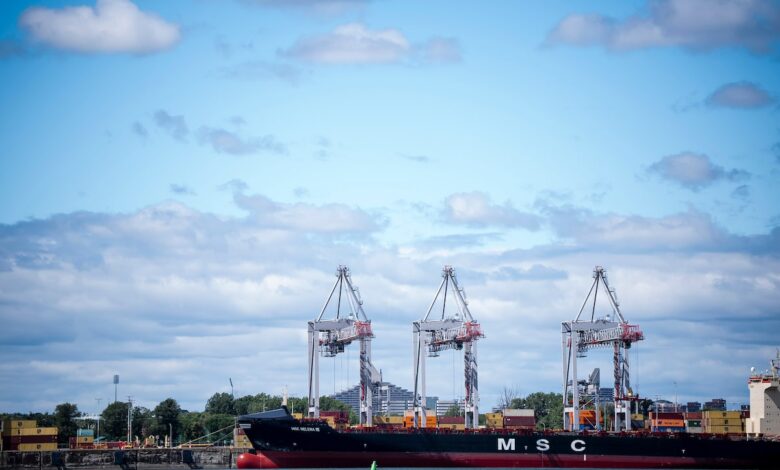Ottawa to support new port infrastructure, signs the critical mineral agreement with Germany

Prime Minister Mark Carney has announced plans to kickstart infrastructure projects within two weeks, with proposals for port extensions in Churchill, Manitoba, and the port of Montreal possibly being among the first to receive funding.
During a press conference in Berlin with Chancellor Friedrich Merz, Mr. Carney revealed an agreement with Germany to collaborate on critical minerals, including potential co-financing of new projects. While specific details and timelines were not outlined in the agreement, this partnership is expected to foster mutual economic growth and development.
The port of Churchill in Manitoba is poised for a significant increase in global shipping activity, according to its CEO, making it a prime candidate for infrastructure upgrades. Mr. Carney’s liberal platform emphasized the importance of supporting large-scale infrastructure projects to mitigate the economic impacts of trade policies like those of US President Donald Trump.
The government has already passed Bill C-5, which streamlines the approval process for qualifying projects. However, no major projects have been officially announced yet. Mr. Carney hinted that upcoming investments may focus on new port infrastructure, particularly in the ports of Montreal, Contrecœur, and Churchill, which could facilitate the export of critical minerals and metals to Europe.
While the expansion of the Contrecœur port near Montreal is already underway, additional investments are being considered to meet growing demands. The port of Churchill has highlighted the urgency of its expansion plans amid trade tensions, positioning it as a priority project under Bill C-5.
Canada’s economy, heavily reliant on natural resource exports to the US, is seeking to diversify its trade partnerships. Minister of Natural Resources Tim Hodgson, accompanying Mr. Carney, signed the critical mineral agreement with Germany, signaling a potential shift towards European markets for Canadian exports.
With Germany aiming to reduce its reliance on Russian energy and critical minerals from China, Canada’s abundant natural gas reserves and mineral resources present promising opportunities for collaboration. The agreement underscores the importance of developing a robust supply chain outside of China, particularly in industries like electric vehicles, defense, and space travel.
By leveraging Europe’s expertise and technology, Canada can enhance the value of its natural resources and drive industrial growth. The partnership between Canada and Germany is set to focus on project financing, technological innovation, and supply chain integration, paving the way for mutually beneficial collaborations.
As Canada looks to diversify its economic ties beyond the US, the partnership with Germany offers a golden opportunity to tap into new markets and bolster industrial development. With a shared commitment to innovation and sustainability, Canada and Germany are poised to strengthen their global position and drive economic growth through strategic cooperation. Prime Minister Carney’s European Tour Focuses on Energy Security
During his recent European tour, Prime Minister Carney emphasized the importance of securing LNG purchase agreements for Canadian exporters and enhancing energy security for Europe. This strategic move not only benefits Canadian businesses but also contributes to the stability of the European energy market.
The journey began with visits to Ukraine and Poland, where discussions centered around strengthening economic ties and energy partnerships. Mr. Carney’s trip to Germany highlighted the significance of long-term LNG contracts in ensuring a reliable supply of natural gas for both Canadian and European markets.
After Germany, the Prime Minister will conclude his tour with a meeting in Riga, Latvia, where he will engage with Prime Minister Evika Silina on further collaboration opportunities. Additionally, Mr. Carney will visit Canadian troops stationed at the Adazi military base, underscoring Canada’s commitment to international security and cooperation.
By prioritizing LNG agreements and fostering relationships with European partners, Prime Minister Carney is demonstrating Canada’s role as a reliable energy supplier and a key player in global affairs. This proactive approach not only benefits Canadian exporters but also contributes to the diversification and resilience of the European energy sector.
Stay tuned for more updates on Prime Minister Carney’s efforts to enhance energy security and promote economic cooperation between Canada and Europe.




